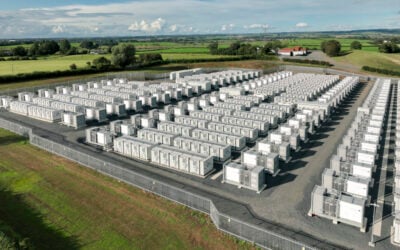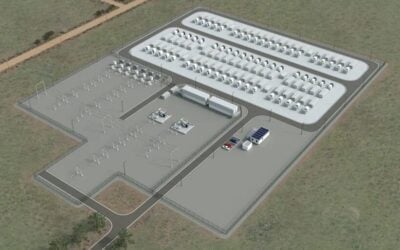
National Grid, in its capacity as the UK’s Electricity System Operator (ESO), last week launched a new ‘Distributed Resource Desk’ in its control room in a move hailed as a “huge step forward” for electricity flexibility markets.
The desk enables the ESO’s power system engineers to issue instructions to owners and operators of distributed energy resources (DERs): smaller power generators, battery storage operators and demand side response (DSR) providers, quicker than before. It enables smaller market players to participate much faster and builds on National Grid’s opening up of the Balancing Mechanism (BM) market last year.
Described as “Great Britain’s core flexibility market”, the BM, worth an estimated £350 million (US$444.2 million) a year to participants, rewards those able to increase or decrease generation or consumption. Batteries entered the BM last year for the first time, Energy-Storage.news reported in August, via a ‘virtual power plant’.
And the desk has already reaped dividends, with the number of bids and offers from these providers accepted by the ESO control room more than doubling to 87MWh in its first 24 hours of operation.
Try Premium for just $1
- Full premium access for the first month at only $1
- Converts to an annual rate after 30 days unless cancelled
- Cancel anytime during the trial period
Premium Benefits
- Expert industry analysis and interviews
- Digital access to PV Tech Power journal
- Exclusive event discounts
Or get the full Premium subscription right away
Or continue reading this article for free
The ESO control room receives bids and offers from generators daily, detailing their power capacities, time frames and prices. These bids are accepted or rejected in order to manage the network at the least possible cost.
National Grid staff working on the new desk have a dedicated focus on optimising new assets to develop their capabilities and by April, the firm expects the Balancing Mechanism market to grow by 179% to 145MW.
Claire Spedding, balancing programme director at National Grid ESO, said the addition of the distributed resource desk was the “next exciting step” for the Balancing Mechanism market.
“Putting a dedicated ‘Distributed Resource’ desk into the control room means we can create expertise in really understanding how these assets can contribute to balancing the nation’s electricity system,” she said.
The launch has also been well received by industry. A spokesperson for DSR provider Flexitricity described the announcement as a “huge step forward” for National Grid in its provision of a flexibility market.
Flexitricity was one of the first industry market providers, alongside Limejump, to access the Balancing Mechanism last year.
A spokesperson for Limejump told our sister site Current±: “We feel this step is a further acknowledgement that sustainable resources and technology can balance the grid and compete, and even surpass the traditional power generation sources in this critical market.
“The relationship we and other flexible providers have with National Grid is going from strength to strength, embracing innovation towards the future of the UK energy system.”





